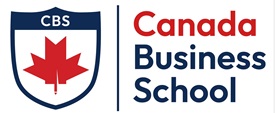Business School Admission Process in Canada

Business School Admission Process in Canada
Business School Admission Process in Canada varies depending on the program, type of degree (undergraduate or MBA), and the specific institution. However, there are common steps and requirements that most business schools follow. Here is a complete overview of the process:
Admission Process for Undergraduate Business Degrees
Undergraduate business programs (such as Bachelor of Business Administration, Bachelor of Commerce, etc.) in Canada generally require students to meet academic and other eligibility criteria.
1. Research the Program and University
- Understand the admission requirements for the specific program you’re interested in.
- Check for program options, tuition fees, available scholarships, and deadlines.
- Popular business programs include BBA, BCom, and Business Management.
2. Academic Requirements
- High School Transcript: Students must have completed secondary school (Grade 12 or equivalent) with specific subject prerequisites.
- Core subjects: Math, English, Economics, or Business-related courses (varies depending on the program).
- Universities often look for strong grades, especially in mathematics.
- Minimum Grades:
- Many business schools require a minimum overall average, often between 70%-80%, depending on the university.
- For competitive programs (e.g., University of Toronto, UBC), the required average may be higher.
3. Language Proficiency
If you’re an international student and your first language is not English, you’ll need to provide proof of English proficiency with one of the following:
- IELTS: Usually, a minimum score of 6.5 overall with no band less than 6.0.
- TOEFL: Generally, an internet-based test score of 90-100 is required.
- Other options: Some schools accept alternate tests like PTE Academic.
4. Application Submission
Apply through the respective university’s online portal or provincial application systems such as:
- OUAC (Ontario Universities Application Centre) for universities in Ontario.
- ApplyAlberta for universities in Alberta.
Documents typically required:
- High school transcripts (converted into Canadian grading standards if you’re an international student).
- Proof of English proficiency.
- Any required essays or personal statements.
5. Essay/Statement of Purpose (Optional)
Some business schools may request a statement of purpose or personal essay explaining:
- Your career goals.
- Interest in the business program.
- Leadership experiences or achievements.
6. Admission Tests (Optional)
Unlike MBA programs, most undergraduate business programs in Canada do not require entrance exams like SAT or ACT. Many schools rely on academic grades.
7. Application Fee
- Pay the application fee, which typically ranges between CAD 100-150, depending on the university.
8. Letters of Recommendation
For highly competitive institutions, some programs may ask for reference letters to evaluate your skills, academic performance, and extracurricular activities.
9. Interviews (Rare for Undergraduate Programs)
Some business schools (especially in competitive programs) may conduct interviews to assess your fit for the program.
Admission Process for MBA Programs
MBA programs in Canada follow a more rigorous process compared to undergraduate programs due to the importance placed on education, work experience, and leadership potential.
1. Eligibility Requirements
- Bachelor’s Degree: Applicants must hold a recognized undergraduate degree, typically with a minimum GPA (often 3.0/4.0 or equivalent).
- Work Experience: On average, 2-5 years of professional, full-time work experience is required.
- Some programs allow entry with less work experience (e.g., early-career MBA programs).
- Leadership experience is a strong advantage.
2. GMAT or GRE Scores
Most MBA programs require a GMAT (Graduate Management Admission Test) or GRE (Graduate Record Examination) score.
- For GMAT, competitive scores range from 550 to 700, depending on the institution.
- Some schools may waive GMAT/GRE requirements if applicants prove strong work experience, GPA, or already hold advanced degrees.
- Popular schools such as Rotman School of Management (University of Toronto) and Sauder School of Business (UBC) require competitive GMAT scores.
3. Language Proficiency
International applicants are required to submit proof of English proficiency:
- IELTS Academic: Minimum band score of 7.0 overall.
- TOEFL iBT: A typical minimum score of 100+.
Exceptions are made for students who have completed education in English-speaking countries.
4. Application Documents
- Academic Transcripts: Provide official transcripts from your undergraduate institution(s).
- Professional Resume/CV: Highlight work experience, leadership roles, achievements, and career progression.
- Letters of Recommendation: Submit 2-3 recommendation letters from academic or professional references who can testify to your skills and abilities.
- Statement of Purpose/Essay: Write a compelling essay detailing:
- Why you want to pursue an MBA.
- Your career aspirations.
- Experience in leadership, strategy, or business.
- How the program will help achieve your goals.
- Application Fee: Ranges between CAD 200-300 for MBA programs.
5. Application Deadlines
Unlike undergraduate programs (with a fixed schedule), MBA programs often have multiple admission rounds. For example:
- Early Deadlines: November–January.
- Regular Deadlines: February–April.
- Rolling Admissions: Vary depending on schools.
6. Admission Interview
Most top business schools require applicants to undergo an interview, either in-person or online, as part of the MBA selection process.
- The interview evaluates:
- Communication skills.
- Leadership potential.
- Fit within the program.
7. Scholarships and Financial Aid
- Look for scholarships offered by universities, such as merit-based or need-based financial aid.
- Many institutions also offer MBA-specific funding, such as:
- Rotman Entrance Awards (University of Toronto).
- Ivey MBA Scholarships.
8. Post-Graduate Work Permissions
An MBA in Canada makes you eligible for a Post-Graduate Work Permit (PGWP) that allows graduates to work in Canada for up to 3 years.
Conclusion
The admission process for business schools in Canada requires careful planning and preparation. Undergraduate applicants focus more on their grades and language proficiency, while MBA applicants must showcase their academic credentials, professional experience, GMAT/GRE results (if required), and leadership qualities.
